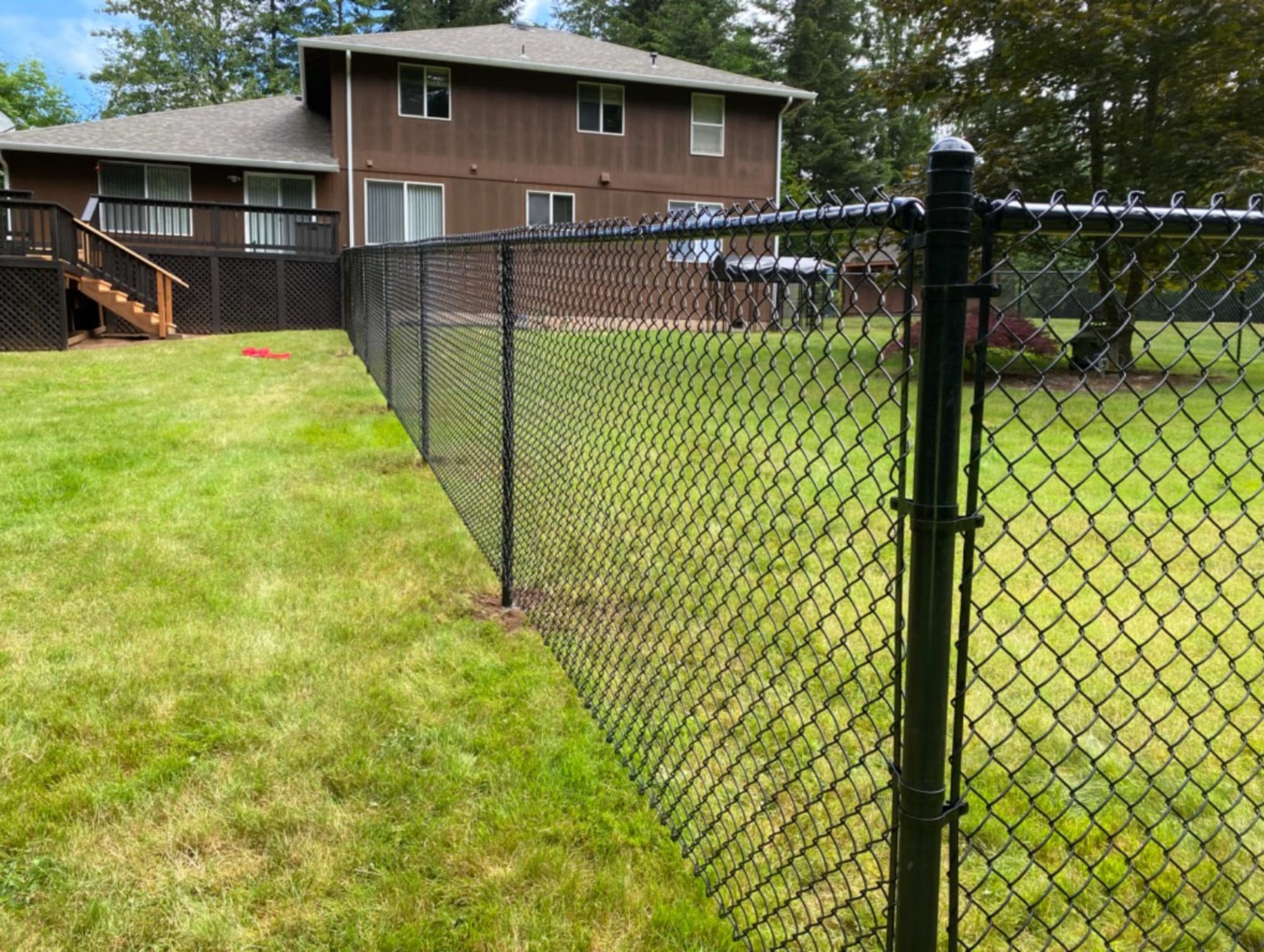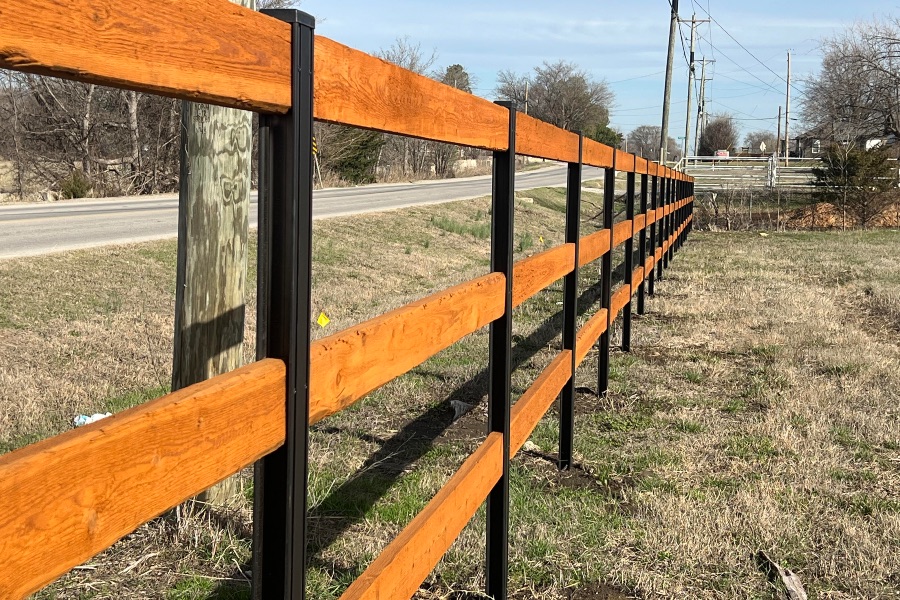All Categories
Featured
Selecting the right fence material for your property is not nearly aesthetic appeals; it's about protection, longevity, and personal privacy. Whether you're aiming to improve the beauty of your home or business, protect your building, or develop a private sanctuary, the material you choose will play a substantial role in attaining your goals. With numerous fence alternatives offered, it's essential to understand the benefits and disadvantages of each before making your decision.
Benefits:
Natural Aesthetic: Timber has a cozy, all-natural allure that enhances the look of any type of residential or commercial property. Customizable: Wood fences can be painted, stained, or left untreated to attain different designs. Personal privacy: A tall wood fence can supply a high level of privacy for your home. Downsides:
Maintenance Required: Wood fences need normal upkeep, including staining and sealing to stop damages from climate and insects. Vulnerable to Climate: Wood can warp, rot, or come to be ravaged with termites if not properly maintained. Much Shorter Lifespan: Compared to materials like vinyl or metal, wood usually has a much shorter lifespan. Best For: House owners seeking a conventional, adjustable, and all-natural look.
![]()
Benefits:
Low Upkeep: Vinyl doesn't call for paint, staining, or sealing. It's simple to tidy with an easy hose down. Durable: Resistant to rot, termites, and weather, vinyl fencings last much longer than timber fences. Range of Styles: Readily available in many styles, colors, and appearances to match any property. Drawbacks:
Greater Preliminary Expense: The upfront price of vinyl fencing is usually more than timber or chain web link. Prone to Cracking: In extreme cold or with heavy impact, vinyl fencings can break or fracture. Much less Personalized: Unlike wood, plastic offers fewer choices for paint or staining. Best For: Organizations or property owners seeking a low-maintenance, resilient, and resilient secure fencing choice.
Advantages:
Stamina and Longevity: Metal fences are strong, immune to put on, and long-lasting. Low Upkeep: When mounted, steel fencings need little maintenance, especially aluminum, which withstands deterioration. High Safety: Metal fences are challenging to climb and provide a reliable obstacle against burglars. Drawbacks:
Price: Steel fencings, especially functioned iron and steel, can be extra pricey than various other choices. Rust and Corrosion: Steel fences, particularly, may corrosion without appropriate treatment. Aluminum is corrosion-resistant, however wrought iron requires normal maintenance. Minimal Privacy: Steel fences do not supply much privacy unless they are combined with other products, like timber slats or vinyl inserts. Best For: Those that focus on safety and longevity over personal privacy, or those with a high end building seeking an elegant, timeless fencing.
Advantages:
Affordable: Chain web link is one of the most inexpensive fence alternatives readily available. Low Upkeep: When mounted, chain web link fencings call for little upkeep beyond occasional cleansing. Long lasting: Chain web link is solid and can last for several years if correctly kept. Disadvantages:
![]()
Limited Looks: Wire mesh fence do not provide the visual charm of wood or functioned iron, and can look utilitarian. Personal privacy Worries: Unless privacy slats or vinyl layers are included, wire mesh fence do not offer much personal privacy. Much less Safe And Secure in Some Locations: While chain web link gives security, it can be quickly scaled or reduced otherwise installed with extra protection functions. Best For: Industrial residential or commercial properties, large residential properties, or areas where protection is a lot more essential than aesthetics.
Advantages:
Low Maintenance: Compound fences call for no staining, securing, or painting. Resilience: Immune to parasites, rot, and weather condition damages, composite fencings last longer than timber. Eco-Friendly: Numerous composite fencings are made from recycled products, making them a sustainable option. Negative Aspects:
Higher Cost: Compound fences can be much more costly than conventional timber or vinyl alternatives. Restricted Customization: While available in numerous shades and designs, composite fences don't offer the same personalization alternatives as timber fencings. Heavy: Compound fence products can be much heavier than other options, making installation a lot more labor-intensive. Best For: Eco-conscious homeowners or businesses seeking a low-maintenance, resilient, and lasting secure fencing product.
Verdict. Selecting the best fence material for your building ultimately relies on your priorities-- whether it's protection, privacy, aesthetic appeals, or reduced upkeep. From classic timber and budget-friendly chain web link to durable plastic and solid metal, each material supplies distinct benefits suited to various needs. By considering factors like budget plan, installation time, maintenance demands, and long-term toughness, you can select the optimal fence that fulfills your property's certain needs.
- Timber Fencing. Wood is one of one of the most prominent secure fencing products due to its versatility, classic appeal, and all-natural appearance. It's best for houses and can be made use of in a selection of designs, including personal privacy fencings, picket fencings, and post-and-rail fencings.
Benefits:
Natural Aesthetic: Timber has a cozy, all-natural allure that enhances the look of any type of residential or commercial property. Customizable: Wood fences can be painted, stained, or left untreated to attain different designs. Personal privacy: A tall wood fence can supply a high level of privacy for your home. Downsides:
Maintenance Required: Wood fences need normal upkeep, including staining and sealing to stop damages from climate and insects. Vulnerable to Climate: Wood can warp, rot, or come to be ravaged with termites if not properly maintained. Much Shorter Lifespan: Compared to materials like vinyl or metal, wood usually has a much shorter lifespan. Best For: House owners seeking a conventional, adjustable, and all-natural look.
- Plastic (PVC) Fence. Vinyl fences are a progressively prominent selection because of their reduced maintenance and longevity. Made from synthetic materials, vinyl fencings are resistant to rot, degeneration, and parasites. Offered in a variety of styles and shades, vinyl fence can be created to simulate the look of timber without the connected maintenance.

Benefits:
Low Upkeep: Vinyl doesn't call for paint, staining, or sealing. It's simple to tidy with an easy hose down. Durable: Resistant to rot, termites, and weather, vinyl fencings last much longer than timber fences. Range of Styles: Readily available in many styles, colors, and appearances to match any property. Drawbacks:
Greater Preliminary Expense: The upfront price of vinyl fencing is usually more than timber or chain web link. Prone to Cracking: In extreme cold or with heavy impact, vinyl fencings can break or fracture. Much less Personalized: Unlike wood, plastic offers fewer choices for paint or staining. Best For: Organizations or property owners seeking a low-maintenance, resilient, and resilient secure fencing choice.
- Metal Fence (Aluminum, Steel, and Wrought Iron) Metal fencings are recognized for their strength, safety and security, and aesthetic worth. Light weight aluminum, steel, and functioned iron fencings are generally used in residential, commercial, and industrial setups, supplying high levels of security and an innovative appearance.
Advantages:
Stamina and Longevity: Metal fences are strong, immune to put on, and long-lasting. Low Upkeep: When mounted, steel fencings need little maintenance, especially aluminum, which withstands deterioration. High Safety: Metal fences are challenging to climb and provide a reliable obstacle against burglars. Drawbacks:
Price: Steel fencings, especially functioned iron and steel, can be extra pricey than various other choices. Rust and Corrosion: Steel fences, particularly, may corrosion without appropriate treatment. Aluminum is corrosion-resistant, however wrought iron requires normal maintenance. Minimal Privacy: Steel fences do not supply much privacy unless they are combined with other products, like timber slats or vinyl inserts. Best For: Those that focus on safety and longevity over personal privacy, or those with a high end building seeking an elegant, timeless fencing.
- Chain Web Link Secure Fencing. Chain web link fencings are just one of the most sensible and affordable choices readily available. Generally made use of in business settings, they can additionally be a great selection for homes, particularly if protection is a top concern. Chain link fences are available in various heights and can be customized with privacy slats for included protection.
Advantages:
Affordable: Chain web link is one of the most inexpensive fence alternatives readily available. Low Upkeep: When mounted, chain web link fencings call for little upkeep beyond occasional cleansing. Long lasting: Chain web link is solid and can last for several years if correctly kept. Disadvantages:

Limited Looks: Wire mesh fence do not provide the visual charm of wood or functioned iron, and can look utilitarian. Personal privacy Worries: Unless privacy slats or vinyl layers are included, wire mesh fence do not offer much personal privacy. Much less Safe And Secure in Some Locations: While chain web link gives security, it can be quickly scaled or reduced otherwise installed with extra protection functions. Best For: Industrial residential or commercial properties, large residential properties, or areas where protection is a lot more essential than aesthetics.
- Compound Secure fencing. Compound fencings incorporate timber fibers and plastic to develop a durable, environment-friendly choice to conventional wood fence. These fencings have the look of timber however need much less upkeep and are immune to rot, bugs, and fading.
Advantages:
Low Maintenance: Compound fences call for no staining, securing, or painting. Resilience: Immune to parasites, rot, and weather condition damages, composite fencings last longer than timber. Eco-Friendly: Numerous composite fencings are made from recycled products, making them a sustainable option. Negative Aspects:
Higher Cost: Compound fences can be much more costly than conventional timber or vinyl alternatives. Restricted Customization: While available in numerous shades and designs, composite fences don't offer the same personalization alternatives as timber fencings. Heavy: Compound fence products can be much heavier than other options, making installation a lot more labor-intensive. Best For: Eco-conscious homeowners or businesses seeking a low-maintenance, resilient, and lasting secure fencing product.
Verdict. Selecting the best fence material for your building ultimately relies on your priorities-- whether it's protection, privacy, aesthetic appeals, or reduced upkeep. From classic timber and budget-friendly chain web link to durable plastic and solid metal, each material supplies distinct benefits suited to various needs. By considering factors like budget plan, installation time, maintenance demands, and long-term toughness, you can select the optimal fence that fulfills your property's certain needs.
Latest Posts
Learn About Best Car Repair Care offered by Montclare Auto Repair – Drive with Confidence
Published May 29, 25
1 min read
Explore Best Car Repair Care from Montclare Auto Repair – Expert Care for Your Vehicle
Published May 28, 25
1 min read
Boost Your Residential Property with Overhead Door Equipment
Published May 24, 25
1 min read
More
Latest Posts
Learn About Best Car Repair Care offered by Montclare Auto Repair – Drive with Confidence
Published May 29, 25
1 min read
Explore Best Car Repair Care from Montclare Auto Repair – Expert Care for Your Vehicle
Published May 28, 25
1 min read
Boost Your Residential Property with Overhead Door Equipment
Published May 24, 25
1 min read